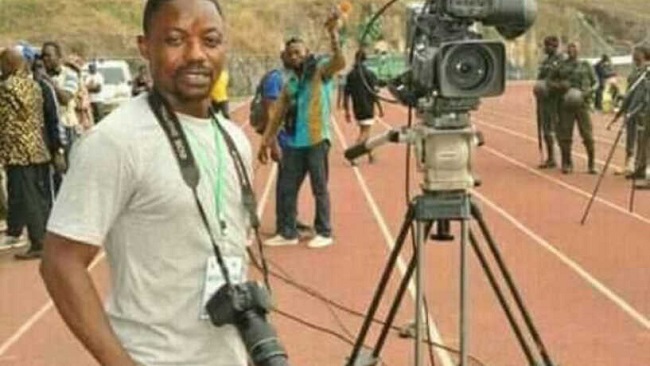Justice for Ambazonia: Reporters Without Borders refers journalist Wazizi’s death to UN rapporteurs
Reporters Without Borders (RSF) has asked three UN special rapporteurs to investigate and determine exactly how Samuel Ajiekah Abuwe, a Cameroonian journalist usually known as Samuel Wazizi, died a few days after being detained by the army in August 2019. Those responsible must be identified and prosecuted in accordance with international standards, RSF says.
On the eve of a hearing tomorrow in Wazizi’s hometown of Buea, the capital of the English-speaking South-West Region, his lawyers and family still have many unanswered questions about the precise circumstances that led to his death just days after his arrest in Buea on 2 August 2019. The government says Wazizi died as a result of a “severe sepsis” but, in June, RSF reported the existence of suspicions in Buea that the journalist’s death was the result of mistreatment or torture.
In the absence of an impartial and independent investigation, RSF yesterday referred the case to the UN special rapporteurs on extrajudicial executions, freedom of opinion, and torture with the aim of getting them to put pressure on the Cameroonian authorities to shed light on the case and identify exactly who was responsible for his death. In its referral, RSF voices its doubts about the legality of Wazizi’s arrest and about the official version of events, and says he may have died as a result of torture by the soldiers holding him.
“Two months after initial revelations about this case, the independent and transparent investigation promised by President Paul Biya has yet to materialize,” said Paul Coppin, the head of RSF’s legal unit. “The government’s version is riddled with inconsistencies and we doubt that we will learn the truth from the promised investigation. We therefore urge the United Nations to do everything in their power to ensure that the circumstances resulting in Samuel Wazizi’s death are established.”
A presenter on Buea-based Chillen Media Television (CMTV), Wazizi was arrested by the police on 2 August 2019 but, five days later, soldiers removed him from the police station where he was being held and took him to the headquarters of the 21st Motorized Infantry Battalion in Buea. He was accused of speaking critically on the air about the authorities and about their handling of the crisis in Cameroon’s English-speaking regions, where clashes between soldiers and separatists calling for independence or more autonomy have left more than 3,200 dead and have displaced 700,000 others in the past three years.
Respect for press freedom has been declining for years in Cameroon, where journalists covering the crisis in the English-speaking regions are exposed to a high risk of threats and arbitrary arrest. Cameroon is ranked 134th out of 180 countries in RSF’s 2020 World Press Freedom Index, after falling five places in the past two years.
Culled from RSF





